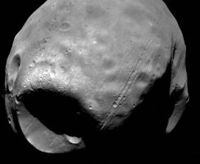SGU Episode 256: Difference between revisions
auto skel, show notes |
fix qow |
||
| Line 25: | Line 25: | ||
|downloadLink = http://media.libsyn.com/media/skepticsguide/skepticast2010-06-09.mp3 | |downloadLink = http://media.libsyn.com/media/skepticsguide/skepticast2010-06-09.mp3 | ||
|forumLink = http://sguforums.com/index.php/topic,28668.0.html | |forumLink = http://sguforums.com/index.php/topic,28668.0.html | ||
|qowText = 'Nothing is so fatal to the progress of the human mind as to suppose that our views of science are ultimate; that there are no mysteries in nature; that our triumphs are complete, and that there are no new worlds to conquer.' | |qowText = 'Nothing is so fatal to the progress of the human mind as to suppose that our views of science are ultimate; that there are no mysteries in nature; that our triumphs are complete, and that there are no new worlds to conquer.' <!-- add quote of the week text--> | ||
|qowAuthor = {{w| | |qowAuthor = {{w|Sir Humphrey Davy}} <!-- add author and link --> | ||
|}} | |}} | ||
Latest revision as of 15:43, 29 August 2013
| This episode needs: transcription, time stamps, formatting, links, 'Today I Learned' list, categories, segment redirects. Please help out by contributing! |
How to Contribute |
| SGU Episode 256 |
|---|
| June 9th 2010 |
 |
| (brief caption for the episode icon) |
| Skeptical Rogues |
| S: Steven Novella |
B: Bob Novella |
R: Rebecca Watson |
J: Jay Novella |
E: Evan Bernstein |
| Quote of the Week |
'Nothing is so fatal to the progress of the human mind as to suppose that our views of science are ultimate; that there are no mysteries in nature; that our triumphs are complete, and that there are no new worlds to conquer.' |
| Links |
| Download Podcast |
| Show Notes |
| Forum Discussion |
Introduction
You're listening to the Skeptics' Guide to the Universe, your escape to reality.
News Items ()
Life on Titan ()
Vulture Threatened by Pseudoscience ()
WHO and H1N1 ()
Who's That Noisy ()
- Answer to last week - radio noise from Saturn
Questions and E-mails ()
Question #1 - Orbit of Phobos ()
It was mentioned that Phobos is falling to Mars because it's orbiting faster than the planet's rotation and that the Earth's moon is spiraling out because it's orbital period is longer than a day. Could you check on this? I'm not knowledgeable enough about the mathematics involved (we're talking about a three-body system since Phobos' orbit is influenced by Deimos) and it doesn't add up with what I've been taught about orbits. It seems to me that orbital speed doesn't involve a planet's rotational speed at all. A stable orbit is dependent on altitude and the masses of the objects involved. As the orbit increases distance from the planet the slower the object needs to go to remain stable. In other words, the higher the orbit, the slower the orbital velocity. Earth and Mars have very much the same periods (24 hours vs 24 hours, 40 minutes) and if your statement held true, they'd have very much the same geosynchronous orbit altitude. Yet a geosynchronous orbit over Earth is about twice that of Mars. Please see: http://www.alcyone.com/max/writing/essays/geostationary-orbits.html Vernon Balbert Oregon
Interview with Steve Matheson ()
Science or Fiction ()
Item #1: New animal research suggests that drinking coffee decreases the risk of developing Type 2 diabetes. Item #2: New research suggests that the Earth was larger prior to the impact that resulted in the Moon than following the impact, and perhaps even larger than its current size. Item #3: Scientists have developed plastic antibodies and have demonstrated that they have biological activity.
Quote of the Week ()
'Nothing is so fatal to the progress of the human mind as to suppose that our views of science are ultimate; that there are no mysteries in nature; that our triumphs are complete, and that there are no new worlds to conquer.' Sir Humphrey Davy
S: The Skeptics' Guide to the Universe is produced by the New England Skeptical Society in association with the James Randi Educational Foundation and skepchick.org. For more information on this and other episodes, please visit our website at www.theskepticsguide.org. For questions, suggestions, and other feedback, please use the "Contact Us" form on the website, or send an email to info@theskepticsguide.org. If you enjoyed this episode, then please help us spread the word by voting for us on Digg, or leaving us a review on iTunes. You can find links to these sites and others through our homepage. 'Theorem' is produced by Kineto, and is used with permission.
References

|